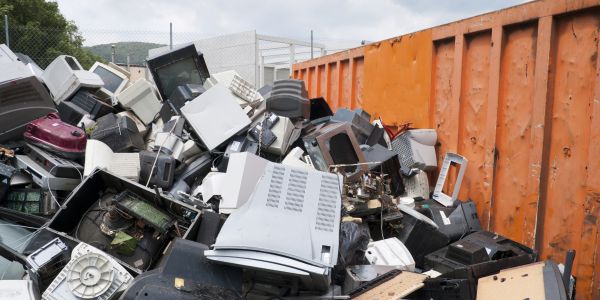As a nation, Americans love their electronics – until they don’t.
The United States leads the world in e-waste, which is the fastest growing source of what’s taking up space in our landfills. Electronics can contain arsenic, lead and cadmium, which are bad for the environment and human health if they end up in our water and food supply.
The good news is that you can safely get rid of your old electronics, in an environmentally responsible way. If you’re ready to upgrade a smartphone, laptop or television make sure you’re following the proper steps for getting rid of your old gadgets.
- The first thing you need to do is erase all personal data. You really don’t want any credit card, bank account or personal medical information ending up in the wrong hands as it could put you at risk for identity theft. If it’s a smartphone or tablet, that means running a factory reset and removing the SIM and SD cards. With a computer, clear the hard drive by running a free erasing program like Softpedia DP Wiper or play it safe and reset it.
- Next, ask yourself if you can donate the item to charity. Functioning cell phones and computers can often be spiffed up and given to places like schools or shelters that can’t afford new ones. Goodwill, Salvation Army and other charities will gladly take working electronics off your hands. Just make sure to ask for a receipt so you can write it off when you do your taxes if you itemize deductions.
- If the item isn’t in good shape and can’t be donated, find a nearby recycling center. Check your municipality’s or county’s website to see if there are any drives coming up or for information on the nearest facilities to turn in your electronics. Other options are to use the manufacturer’s take-back program or to head to the nearest Best Buy or Staples, both of which have an amazing recycling program for old TVs, phones, computers, batteries and more.
If you found this post helpful, you might also enjoy:
- How to Start a Backyard Compost Pile
- Quiz: Are You Recycling the Right Way?
- What You Need to Know About Microplastics








